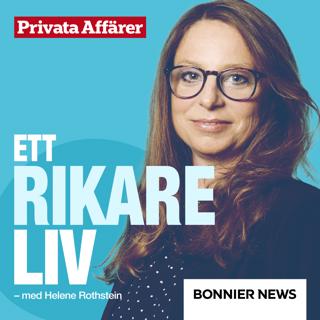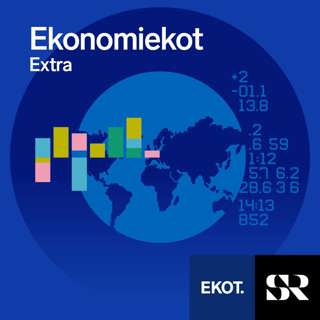
The Third Vaccine, and Vaccine Choice
https://a16z.com/2021/03/15/16-minutes-58-the-johnson-johnson-vaccine-and-covid-efficacy-rates/
18 Mars 202112min

Companies & Culture: What You Do Is Who You Are
This podcast -- which was recorded at the Computer History Museum in a live event, before the pandemic (first published in December 2019) is all about how companies create culture: A lot's changed... and a lot hasn't. a16z editor in chief Sonal Chokshi interviews a16z co-founder Ben Horowitz -- author of the book What You Do Is Who You Are -- on whether companies and people can change; how the very thing that is your strength can also be your weakness; how startups evolve from pirates to the navy; actions vs words and values; and more. The discussion also covers common tropes that often come up in Silicon Valley folklore -- whether it’s “fake it til you make it” and the “reality distortion fields” of visionaries… vs. liars. Drawing on historical themes and examples from a thousand years ago to today -- spanning empires, wars, revolutions, hip-hop, and prisons -- the discussion covers key themes and nuances, as well as practical advice, on creating company culture. Please note -- especially if you’re listening on smart speakers at home with children or with kids in a car -- that the discussion that follows includes various mentions of violence. 100% of the proceeds of the book go to anti-recidivism as well as towards helping Haiti. Nick Quah, writer and publisher of Hot Pod (also at Vulture) joins a16z general partner Connie Chan -- and editor in chief (and showrunner of the a16z Podcast) Sonal Chokshi -- to talk about all this and more in this hallway-style jam.
9 Mars 202159min
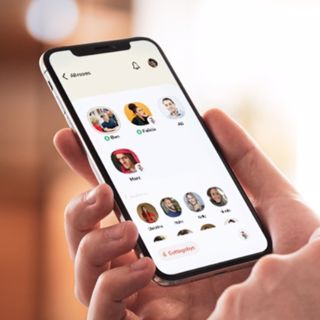
Boss Talk with Ben Horowitz
Boss Talk is a weekly live show on Clubhouse, where a16z cofounder Ben Horowitz and Databricks CEO Ali Ghodsi discuss CEO stuff, leadership stuff, management stuff… you know, boss stuff. Here we share the second installment; in it, they explain Conway’s Law and shipping your org chart; how to transition from a boss to a boss of bosses; and their predictions for Silicon Valley post-pandemic.For more episodes of Boss Talk and other conversations from a16z, check out our separate feed, a16z Live.
28 Feb 202159min
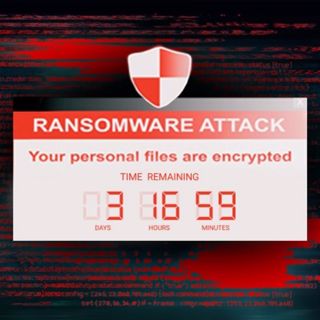
All About Ransomware
In just the last couple years, ransomware has grown into a multibillion dollar industry. It has evolved from taking systems and servers hostage to stealing data, and it has proven capable of shutting down global organizations. In recent months, ransomware groups directly shut down Kia Motors North American IT systems; indirectly may have contributed to the death of a patient due to hospital ransomware; and allegedly stole sensitive files from a law firm whose clients include former President Trump.In this explainer episode, Tom Hofmann, the SVP of Intelligence at Flashpoint Intel (which monitors ransomware criminal syndicates and assists organizations with prevention and response) and a16z security operating partner cover: how ransomware works, from the anatomy of a hack to how the groups operate; the role of nation-states, insurers, and regulators; and what to do if your stuff is taken hostage.For more on cybersecurity, check out our coverage of organized cybercrime and hacks and our 16 step guide to protecting your data.
25 Feb 202135min

One on One with Marc and Ben
On social audio app Clubhouse, Marc Andreessen and Ben Horowitz are hosting a new live show called "One on One with A and Z", where they go deep on questions submitted via Twitter. The show is based in part by a newspaper column that Andy Grove did in the 80s, where readers sent in questions for him to answer in his column. In this mega-episode of the a16z Podcast, we've combined their first two episodes into almost three hours of discussion and debate about some of the most important topics in entrepreneurship, tech, and culture. Each of these episodes also initially aired on our new show, a16z Live, which captures and share many of the live discussions and events featuring, hosted, or co-hosted by a16z partners (with outside voices too) on Clubhouse and beyond.
17 Feb 20213h 1min
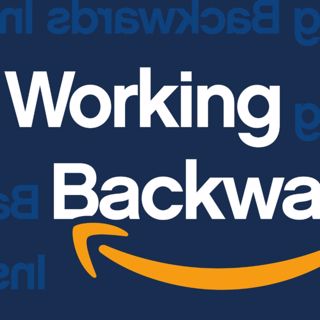
Amazon Narratives: Memos, Working Backwards from Release, More
When you hear stories about Amazon's "invention machine" -- which led to a company with not just one or two products but several successful diverse lines of business -- we often hear about things like: Memos, six pages exactly and no powerpoints at all!; or, the idea of just "work backwards from the press release"; and other such "best practices"... But what's often lost in hearing about these is the context and the details behind them -- the what, the how (as well as their origin stories) -- not to mention how they all fit together. Knowing this can give us insight into how all companies and leaders, not just Amazon and Bezos, can define their cultures and ways especially as they scale. After all, Amazon was once a small startup, too.So in this a16z Podcast with Sonal Chokshi -- the very first podcast for the new book Working Backwards: Insights, Stories, and Secrets from Inside Amazon (out February 9) -- authors Colin Bryar and Bill Carr share not only how Amazon did it, but how other companies can do it, too, drawing on their combined 27 years of firsthand observations and experiences from being in "the room" where it happens. Bill was vice president of digital media, founded and led Amazon Music, Amazon Video, Amazon Studios; and Colin started out in the software group, was a technical vice president, and then, notably, was one of Jeff Bezos' earliest shadows -- the shadow before him was in fact Andy Jassy, president and CEO of Amazon Web Services (soon to be CEO of Amazon).The two share not only the early inside stories behind (ultimately) big business moves like AWS, Kindle, Prime -- but more importantly, the leadership principles, decision making practices, AND operational processes that got them there. Because "working backwards" is much, much more than being obsessed with your customers, or having company values like "are right a lot”, "insist on the highest standards", "think big", "bias for action", and more. The discussion also touches on hot-topic debates like to lean-MVP-or-not-to-be; the internal API economy; do you even need a chief product officer; and if you need less, not more, coordination as you grow. Can startups really be like Amazon? Yes: and it comes down to how leaders, organizations, and people at all levels decide, build, invent... using the power of narratives and more.---The views expressed here are those of the AH Capital Management, L.L.C. (“a16z”) personnel quoted and are not the views of a16z or its affiliates. Certain information contained in here has been obtained from third-party sources, including from portfolio companies of funds managed by a16z. While taken from sources believed to be reliable, a16z has not independently verified such information and makes no representations about the enduring accuracy of the information or its appropriateness for a given situation. In addition, this content may include third-party advertisements; a16z has not reviewed such advertisements and does not endorse any advertising content contained therein.This content is provided for informational purposes only, and should not be relied upon as legal, business, investment, or tax advice. You should consult your own advisers as to those matters. References to any securities or digital assets are for illustrative purposes only, and do not constitute an investment recommendation or offer to provide investment advisory services. Furthermore, this content is not directed at nor intended for use by any investors or prospective investors, and may not under any circumstances be relied upon when making a decision to invest in any fund managed by a16z. (An offering to invest in an a16z fund will be made only by the private placement memorandum, subscription agreement, and other relevant documentation of any such fund and should be read in their entirety.) Any investments or portfolio companies mentioned, referred to, or described are not representative of all investments in vehicles managed by a16z, and there can be no assurance that the investments will be profitable or that other investments made in the future will have similar characteristics or results. A list of investments made by funds managed by Andreessen Horowitz (excluding investments for which the issuer has not provided permission for a16z to disclose publicly as well as unannounced investments in publicly traded digital assets) is available at https://a16z.com/investments/.Charts and graphs provided within are for informational purposes solely and should not be relied upon when making any investment decision. Past performance is not indicative of future results. The content speaks only as of the date indicated. Any projections, estimates, forecasts, targets, prospects, and/or opinions expressed in these materials are subject to change without notice and may differ or be contrary to opinions expressed by others. Please see https://a16z.com/disclosures for additional important information.
8 Feb 20211h 3min

Anatomy of the SolarWinds Hack: Who What Where When How
In this special “3x”-long episode of our (otherwise shortform) news analysis show 16 Minutes -- past such 2-3X explainer episodes have covered section 230, Tiktok, GPT-3, the opioid crisis, more -- we cover the SolarWinds hack, one of the largest (if not the largest!) publicly known hacks of all time... and the ripple effects are only now starting to be revealed. Just this week, the U.S. Cybersecurity and Infrastructure Security Agency shared (as reported in the Wall Street Journal) that approximately 30% of both private-sector and government victims linked to the hack had no direct connection to SolarWinds. So who was compromised, do they even know, can they even know?!Because this hack is a supply-chain compromise involving various third-party software and services all connected together in a "chain of chains", the knock-on effects of it will be revealed (or not!) for years to come. So what do companies -- whether large enterprise, mid-sized startup, or small business -- do? What actually happened, and when does the timeline really begin? While first publicly revealed in December 2020 -- we first covered the news in episode #49 here when it first broke, and there have been countless headlines since (about early known government agency victims, company investigations, other tool investigations, debates over who and how and so on) -- the hack actually began not just a few months but years earlier, involving early tests, legit domains, and a very long game.We help cut through the headline fatigue of it all, tease apart what's hype/ what's real, and do an "anatomy of a hack" step-by-step teardown -- the who, what, where, when, how; from the chess moves to technical details -- in an in-depth yet accessible way with Sonal Chokshi in conversation with a16z expert and former CSO Joel de la Garza and outside expert Steven Adair, founder and president of Volexity. The information security firm (which specializes in incident response, digital forensics/ memory analysis, network monitoring, and more) not only posted guidance for responding to such attacks, but also an analysis based on working three separate incidents involving the SolarWinds hackers. But how did they know it was the same group? And why was it not quite the perfect crime?image: Heliophysics Systems Observatory spacecraft characterize, in the highest cadence, the constant stream of particles exploding from the sun affect Earth, the planets, and beyond via NASA Goddard Space Flight Center / Flickr
1 Feb 202147min

Psychedelics: Striking a Balance Between Benefits and Side Effects
In recent years, there’s been a shift in how we think about psychedelics – from drugs of abuse and recreation, to powerful drugs for treating neuropsychiatric conditions such as depression, addiction, and PTSD. But there’s still a lot we don't know about how they work, and how we can maximize their therapeutic benefits while minimizing their adverse side effects. So this episode of Journal Club discusses a method for striking that balance, from a paper published in Nature last month, “A non-hallucinogenic psychedelic analogue with therapeutic potential“... which could represent a major step forward in psychedelic medicine. This episode first appeared on Bio Eats World:https://a16z.com/2021/01/21/journal-club-safer-psychedelic/
23 Jan 202126min


















